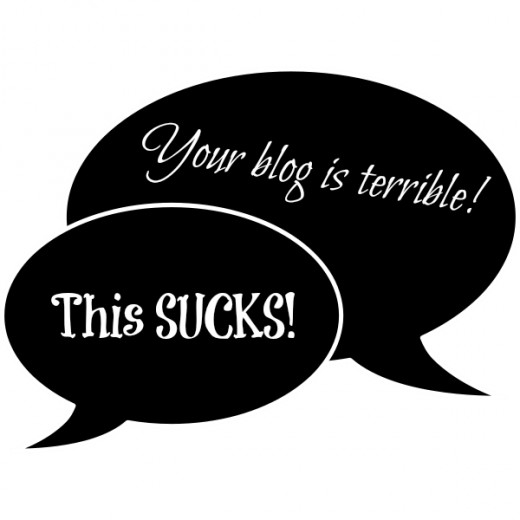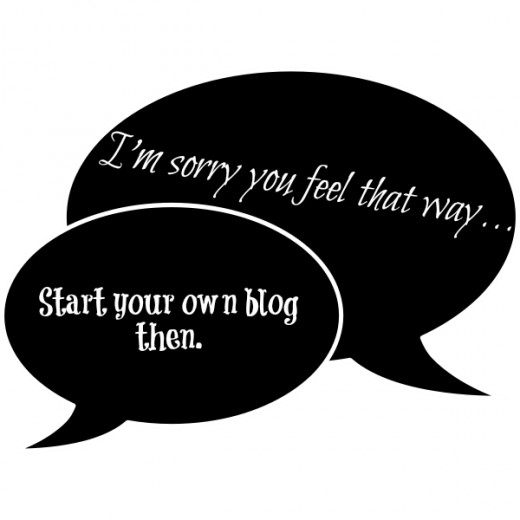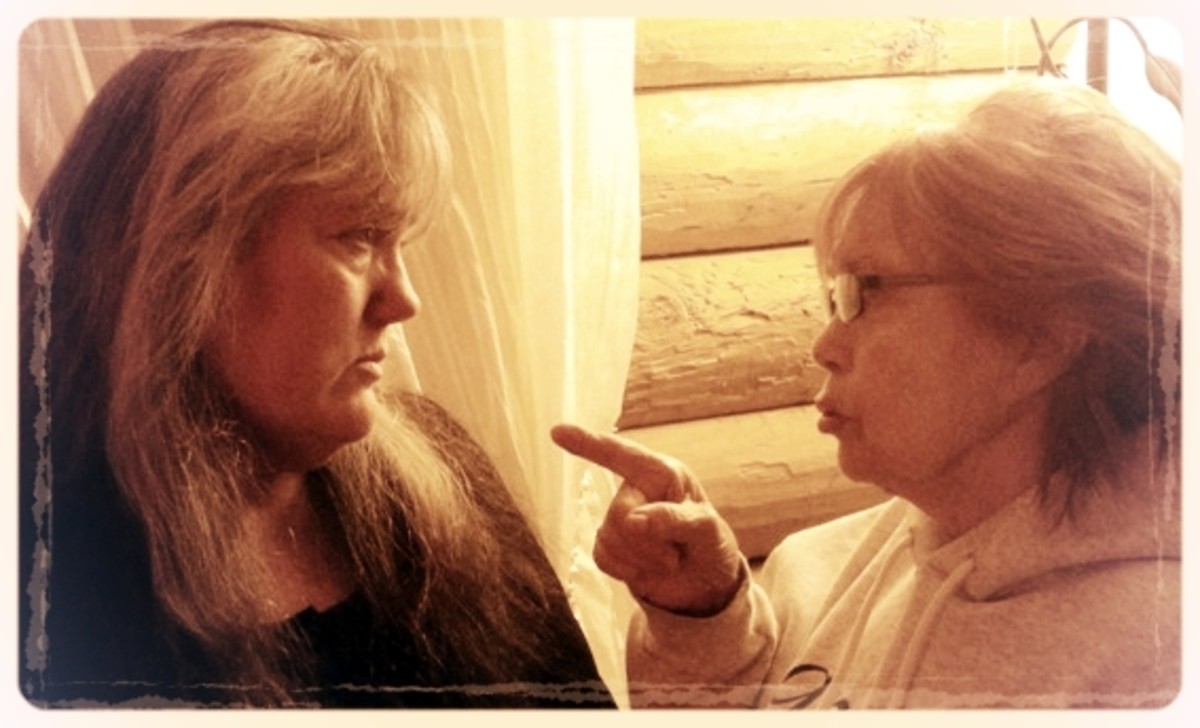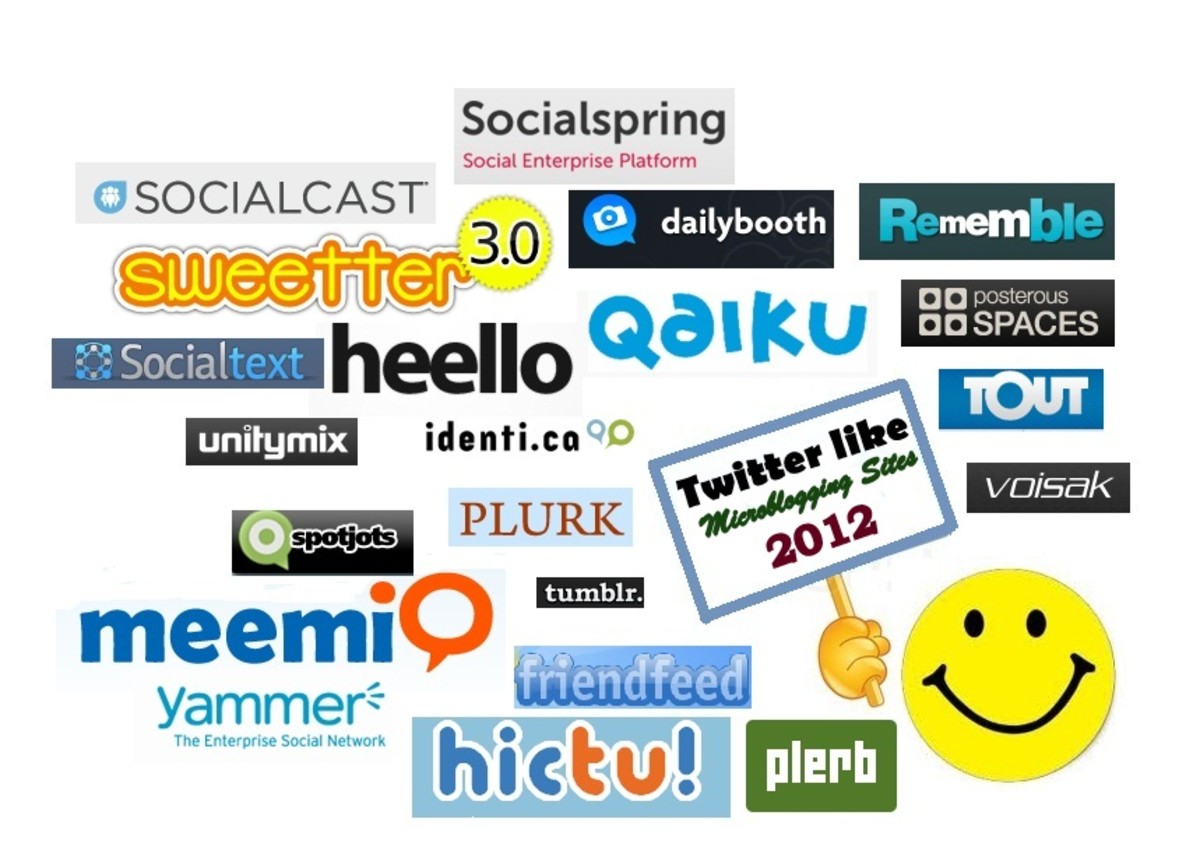How to Deal With Negative Comments or Feedback on Your Blog

When readers don't like what you have to say
Whether you are a writer, a musician, or a famous painter, all artists must know how to deal with negative feedback and criticism about their work. With the age of the blog upon us, writers are realizing more and more, how difficult it is to blog online without pissing someone off. So how does one continue their love of writing without succumbing to negative feedback or fear that you will hurt someone else's feelings?
Expect that your following will wax and wane
I remember the first day I realized someone un-followed my blog. When I woke up in the morning, I had 20 followers and by bedtime, it was 19. I was devastated. I sat in a funk for days about it. There were a couple of problems with my reaction.
1. It stopped my writing flow as I obsessed about what I had done wrong.
2. I spent too much time scouring through my subscription list to see if I could figure out who it was. I'm not sure why, because honestly- what was I going to do about even if I did know?
As difficult as it may feel that first time someone rejects you, try to remember that it is not YOU they are rejecting. Perhaps they are trying to clean out their email or didn't realize what your blog was about when they signed up. Whatever the reason, it may have nothing to do with your skill as a humorous or insightful blogger. Stop wasting time analyzing it!
Lots of good bloggers lose followers all the time. It is the nature of the beast unfortunately.
Expect criticism
If you plan to blog, criticism comes along with the package. Unless you are blogging about computer science code or some other non-moral topic, expect that sooner or later, you will accidentally hurt someone's feelings.
And just because you are blogging about knitting, it doesn't mean you won't get negative feedback. Perhaps your methods are questionable, your review of a certain product is not popular, etc. Whatever you blog about, don't set yourself up for the idea that you will always have happy and loyal readers.
It makes that first time a little bit less of a surprise.
Think about it for a few minutes
If someone leaves a remark that you perceive as critical or judgmental, take five minutes and do the following assessment:
The Questions You Can Ask Yourself
| Looking for Motivation
|
|---|---|
Do I know this person?
| If you don't, try to decide if they are even someone you should waste your time on.
|
If I don't, what is their point?
| If it seems inflammatory, then just let it go entirely.
|
If I do, is their any reason you know of as to why they would say this?
| Sometimes, real life drama spills onto the blog, in which case, it should be dealt with outside the blog.
|
Is there any truth in it?
| Whatever might be true, take away. The rest- leave it and don't look back.
|

What is the proper response?
In many cases, the best response is no response. After all, your blog was written to shed some light on a topic and your point of view. If you did a fairly decent job of explaining yourself, there is no need to get into a fighting match with someone who disagrees. Let them say their piece and be done with it.
But what if they misunderstood you?
In some cases, a reader may have misunderstood your point. You can reply to their comment with a brief clarification, but then leave it alone. After all, that is what comments are for- so people can give their two cents about what you wrote.
Should I delete negative comments?
My personal opinion is no. If you delete negative comments, you set yourself up to look like a militant blogger. Even if you don't mean to, it can communicate this message, "Only opinions that are like mine are allowed here." That will drive readers away quickly.
You can make a blanket rule that any swearing or comments with links will be deleted, but other than that, just leave it up...even if it is negative. It shows that you aren't intimidated by differing opinions...and you can take a bit of heat.
Blogging Brilliance by Julie
- The Lonely Blogger
A hazard of the chronic blogger. - Clawing Your Way to an Online Presence | The Difficu...
This article explores some of the hardships of online branding, and then gives some principles to help build your presence on the Internet. - Bloggers | How to Promote Your Blog and Build Your T...
After five years of blogging, a lot of trial and error, blogger Julie DeNeen gives readers her tried and true tips for building a loyal audience. If you want a quick fix, this isn't the article for you. It is about a slow, deliberate, strategic plan
Real life drama because of the blog
I've been blogging for five years and I have had a ton of real life drama because of my blog.
1. People didn't want me putting up pictures of them without their consent.
2. People didn't like the way I portrayed them on the blog.
3. People didn't agree with my analysis of a situation.
4. Relatives or acquaintances assumed they "knew" me because of the blog.
5. People were offended by my language or the personal nature of it.
6. People drew conclusions about my life based on my blog.
So what can you do about all of this?
People didn't want me putting up pictures of them without their consent.
If a parent doesn't like you using a photo of their child, then take it down immediately. In fact, you really should check with the parents before using it. However, if it is a photo of someone over 18, you don't technically need their consent, as long as you are using a photo that you captured. If they speak to you about it, it is a courtesy to take it down, unless it's absolutely necessary to the blog content for the day.
People didn't like the way I portrayed them on the blog.
Oh well. This is my response, unless of course it is a dear friend and I care about their feelings and opinions. Blogs are meant to be satirical, sarcastic, characterized, etc. You can avoid a lot of this by explaining to your friends about your writer's "voice". In many cases, friends will understand if you describe your overall vision and theme for the blog. And...tell them that you included them because they are integral part of your life. Who could be offended about that?
People didn't agree with my analysis of a situation
Explain to them nicely that they are free to open up their own blog and give an opposite analysis of the situation in question.
Relatives or acquaintances assumed they "knew" me because of the blog.
This is a typical hazard of the chronic lifestyle blogger. People might think that your life is encompassed in the blog. All you have to say is that there is more to you than what is posted on the blog. Other than that, you can't do much.
People were offended by my language or the personal nature of it.
This is a typical response from older friends and relatives who aren't used to the social nature of the Internet. You can try to explain the concept of a blog, but be prepared for people to not get it. Just politely tell them they don't have to read it if it bothers them.
People drew conclusions about my life based on my blog.
It's inevitable. Your real friends will stick around regardless. The ones who harbor secret resentments or jealousy, won't.
Anonymity
Of course, you can avoid all this by opening up an anonymous blog. This works well for some, but for others- it eventually gets too labor intensive to keep your identity hidden. What's easier is to change the names of people you want to protect. Of course, real life readers might continue to try to guess who you are talking about, but at least you can say you tried to disguise them.
Have you ever had negative feedback on your blog?
Prepare people
There are a couple ways you can prepare family and friends for your blog.
Tell them.
Explain to them your blog idea, your voice, and your plans. Apologize in advance so they know that you aren't deliberately trying to make their lives miserable.
Patience
It's been about five years and most of these problems have gone away. People just know that if they hang out with me, they will appear on the blog sooner or later. It's a given, and if you don't want to be on it, then don't hang out with me. And I can say things now I could never say before, simply because I know that readers understand the sarcastic nature of my blog.
Make a Disclaimer Page
An easy way to warn incoming readers, is with a disclaimer page. Write up something about you, your opinions, and/or what you expect. That way, if you get a nasty commenter, you can simply point them to your nifty disclaimer page.
Don't take yourself too seriously
Above everything else, know that even some of the greatest artists and entrepreneurs of the world were hated by someone somewhere along the way. Negative feedback is a left handed compliment. It means you stirred up enough emotion to evoke a response.
That isn't all bad.


About the author
Julie DeNeen is a freelance writer, blogger, and author. She can be found at Life According to Julie or at Fabulous Blogging. She's got her PhD in pissing people off.







